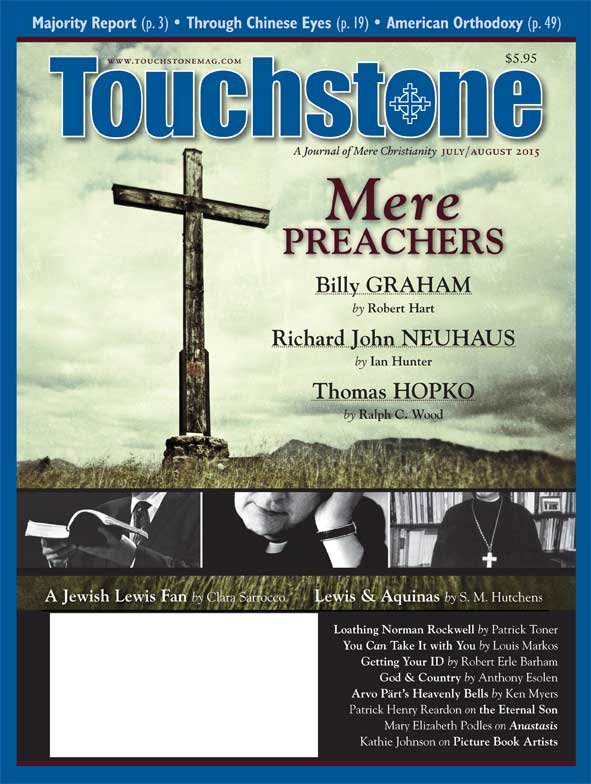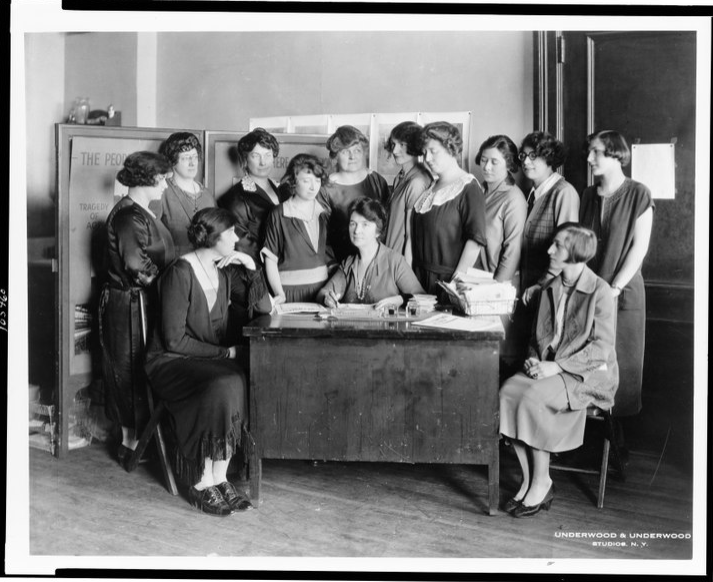Editorial
No Argument
We Are Given Clarity About Sexual Morality by S. M. Hutchens
On May 5, 2015, an assistant professor of cross-cultural psychology posted on the Philadelphia Inquirer's blog site her belief that in examining arguments for same-sex marriage, the Supreme Court had failed to appreciate "a rich heritage of same-sex marriage traditions both abroad and in North America. . . . The justices correctly acknowledged that male homosexuality was accepted in some contexts in ancient Greece. . . . What they did not recognize was that strikingly similar same-sex relationships were once given marital rights in the Azande society of Sudan." (Verily, how could they have missed that?) She also notes that more than a hundred Native American cultures recognized "two-spirits people," male and female, as a third gender with the right to marry those of the same biological sex. As one would expect, it was the arrival of European (i.e., Christian) colonists in both cases that put the more liberal-minded and realistic native populations under pressure to change their ideas.
We may assume that any kind of "relation" imaginable has some kind of history, and this history can be transmuted to "richness" by partisans who do everything they can to make it so. For this reason, when I read polemics like we find in this posting between its author and her supporters and their conservative respondents, I become concerned that the advocates of traditional morality put too many eggs in the tradition basket—from which alone no authority can be extracted—while failing to give appropriate weight to a strong parallel history of traditional immorality, and placing too much reliance on rhetoric to establish their point.
This way of operating is common, and usually strikes me as evasive, as hopeful playing to a dwindling gallery, and as having a strong tendency to lose the central point about "traditional morality," if what is meant by that is Christian teaching on this subject, which is that God condemns as sin what goes by the name of homosexuality, and denial of this is itself morally culpable on the basis of what is known by the whole human race about his character. This is an unmistakable teaching of Romans 1, which identifies the entire pro-gay agenda as willful defiance in the face of known truth, and all argumentation on its behalf as equally willful hypocrisy. It is worth considering whether knowledge of the futility of opposing the Creator and with him the stars in their courses aids in making the public demonstrations of homosexualism as violent and fey—as hopeless—as they so commonly are.
We cannot attribute good will or desire for truth to those who take up cudgels on behalf of sodomy, as we might if the debate were on fiscal policy or capital punishment or predestination or even cohabitation. Nor does it appear that even the characteristic desire of modernism to rationalize sexual transgression, described by E. M. Jones, would enter much into the defense of desires that contravene what Christians have been given to understand is unnatural vice, rationalization being the attempt to reconcile such desires as natural within a rule of universal order.
Failing to conduct ourselves upon the basis of this knowledge we share with the homosexualist robs us of the power of truth. If we won't be frank about our constitutional articles at the outset, especially among ourselves, if we allow them to embarrass and silence us in the secular world because we can most assuredly expect to be mocked for adhering to Christian moral teaching, if we cannot bring ourselves to say, "This is sin," we have consented to negotiate with the foxes and wolves by admitting that what our faith regards as inarguable can be argued about. Our task among the advocates of homosexuality, however, is not to be silent, but to remind them—to a certain point—that they are wrong, and show that they know it by leaving a trail of clear evidence in evasion, illogicity, inconsistency, and malfeasance. By the force of clarity in these matters we serve those among them who are Christ's, and will turn to him. •
S. M. Hutchens is a senior editor and longtime writer for Touchstone.
bulk subscriptions
Order Touchstone subscriptions in bulk and save $10 per sub! Each subscription includes 6 issues of Touchstone plus full online access to touchstonemag.com—including archives, videos, and pdf downloads of recent issues for only $29.95 each! Great for churches or study groups.
Transactions will be processed on a secure server.
more from the online archives
calling all readers
Please Donate
"There are magazines worth reading but few worth saving . . . Touchstone is just such a magazine."
—Alice von Hildebrand
"Here we do not concede one square millimeter of territory to falsehood, folly, contemporary sentimentality, or fashion. We speak the truth, and let God be our judge. . . . Touchstone is the one committedly Christian conservative journal."
—Anthony Esolen, Touchstone senior editor











